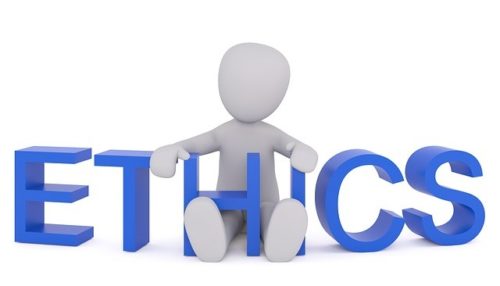-
Cultural Competence: Recognizing Implicit Bias Successful legal practice requires positive working relationships within an environment of cooperation and respect. Professionalism prompts productivity, which creates profit. This program seeks to enhance your ability to achieve and maintain a thriving, productive, inclusive workplace of equal opportunity through a lively discussion of how to detect and address implicit bias, increase diversity, and enhance cultural competence. This program will focus on how to recognize implicit bias through some of the more common perceptible red flags flown by employees harboring biased views or discriminatory intent. By discussing what to look for, and where and when to look, this program will enhance the ability of managers and supervisors to spot problem employees sooner rather than later. Focusing on education and inclusion will reduce workplace harassment, bullying, and discrimination, boost morale, and help employers avoid legal liability. Addressing issues of implicit bias will help employers to maintain a workplace that is both culturally diverse and culturally sensitive, to promote a sense of inclusion and comfort for all employees.
-
Cyber Security for Lawyers and Law Firms In this timely and compelling CLE program, attorney, Russell Jackman presents: “Cyber Security for Lawyers and Law Firms.” Mr. Jackman introduces the program going over major concerns with cyber security and explains what malware and cyber attacks are. The program continues with a discussion of who the attackers are and how they attack a law firm or lawyer's computer. The program gives an in-depth explanation of how to protect yourself and your computer. This program is for any attorney with a computer. AGENDA
- Concerns with Cyber Security
- Malware and Cyber Attacks
- Who is attacking
- Ransomware
- Hijackers and Adware
- Virus, bugs, and worms
- Anti-Virus Software
- Firewalls
-
Dealing with the Disruptive Practitioner in a Legally Compliant Manner
-
Direct Examination: Making the Witness Look Good
-
Domestic violence as intimate terrorism: mitigation for criminal defense lawyers
Abuse of domestic partners in the form of physical, psychological, financial, sexual, and related forms of abuse tends to be systemic in nature causing complex trauma to the victim who suffers overwhelming psychological and emotional stress leading to various psychiatric issues forcing the victim to contend in unhealthy ways while experiencing deep feelings of helplessness, hopeless despair, and pain. This program will provide a detailed understanding of the victim’s experiences and challenges for the criminal defense lawyer in such cases.
Agenda
- To understand the types of abuses that victims suffer.
- To understand the concept of complex trauma and how it can be applied to victims of domestic abuse to understand their trauma for defense purposes.
- To understand the major psychiatric diagnoses associated with victims of domestic violence.
-
Attorney Licensure and the Impaired Professional
-
Effective and Ethical Use of Experts One of the most important issues lawyers face in preparing for trials and other hearings is whether or not to retain an expert. This program will cover the range of topics and issues that would benefit from expert testimony, including the relevant legal issues and arguments, as well as how to prepare your expert to take the stand. It will also cover what should factor into the decision as to whether to retain an expert for consultation purposes only, or also to testify in court. This program will cover applicable ethics rules and standards that apply to using expert witnesses. It will include the ABA Model Rules, Ethics Opinions, the ABA Criminal Justice Section Standards, and applicable case law. Issues range from compensation, to independence of opinion, to potential conflict of interest, to manner of testifying. This program will also cover preparing an expert to testify, including how to tailor the method and manner of testimony to the facts of your case. Because jurors do not appreciate (or understand) an expert who speaks in industry-specific jargon from an ivory tower, this program will cover how to humanize your expert. In covering this important interpersonal angle, it will present discuss the results of research studies investigating juror perception of expert witnesses. Agenda:
- Introduction to the importance of considering ethical expert testimony in legal proceedings
- Overview of ethical legal issues and arguments that benefit from expert testimony
- Discussion of ethical factors to consider when deciding whether to retain an expert for consultation or testimony
- Explanation of applicable ethics rules and standards for using expert witnesses, including ABA Model Rules, Ethics Opinions, Criminal Justice Section Standards, and relevant case law
- Discussion of compensation, independence of opinion, potential conflicts of interest, and manner of testifying in ethical manner
- Ethical Techniques for preparing an expert to testify, including tailoring testimony to the facts of the case
- Ethical Strategies for humanizing an expert and avoiding industry-specific jargon
- Ethical Presentation of research studies on juror perception of expert witnesses
-
Effective Legal Representation In Today's Federal Social Security Disability Arena In this timely and compelling CLE program, attorney, Scott Daniels teaches Federal Social Security Disability Representation Mr. Daniels begins the program with an overview of applicable laws, eligibility, and standard for disability claims. Attorney Daniels then proceeds to cover various types of disability programs. He also discusses the five steps in evaluating a disability claim. Mr. Daniels concludes the program with case examples and an overview of the Federal Disability Claim Process and who bears the burden of proof. This program is a must watch for any attorney who wants to learn more about Federal Disability Claims. Agenda
- Applicable Social Security Laws
- Types of Disability Programs
- Evaluation Process
- Federal Disability Process
- Case Examples
-
Elimination of Bias in the Legal Profession: Both Personally and Professionally This program is designed to provide a comprehensive understanding of laws regarding bias and discrimination, and how they apply specifically within the legal profession, but overlap with a lawyer's personal life. Participants will learn about the latest developments in state and federal laws governing bias and discrimination, and will be exposed to relevant practical examples of bias and discrimination under state and federal law. Through the program, participants will develop the ability to identify not just overt gender bias, but also subtle gender bias, stereotyping, and prejudices. The ethical rules that apply to exhibiting bias and discrimination in a work setting, as well as dealing with clients and potential clients will also be covered. The agenda will include strategies to eliminate and prevent bias within the workplace and a review of tips for creating an inclusive culture. Agenda:
- Introduction: Welcome and overview of the seminar's objectives and key topics to be covered.
- Developments in State and Federal Laws: A review of recent developments and updates in state and federal laws related to bias and discrimination and their implications for the legal profession.
- Practical Examples of Bias and Discrimination: Discussion of real-life scenarios and case studies that illustrate bias and discrimination within the legal profession.
- Identifying and Addressing Bias: Techniques for identifying and addressing overt and subtle bias, stereotyping, and prejudices in the workplace and beyond.
- Ethical Rules and Responsibilities: An overview of the ethical rules and responsibilities that apply to exhibiting bias and discrimination in the legal profession, including how to interact with clients and potential clients.
- Strategies for Eliminating and Preventing Bias: Discussion of strategies and best practices for eliminating and preventing bias within the workplace, including tips for creating an inclusive culture.
- Summary of key takeaways and next steps for attendees to continue learning and implementing the information covered in the seminar.
-
Entity Formation 101 In this timely, and compelling, CLE program attorney, Todd Kulkin, presents “Entity Formation 101”. The program begins with an overview of the entity formation process and the three primary questions in entity formation. The program continues with an in-depth look at the type of entities, corporate veil issues, and benefit corporations. Mr. Kulkin then provides an explanation of S Coprs, C Corps, and Judicial considerations. The program concludes with a corporate governance discussion. This program is for any attorney who’s in business or has clients in business or wants to be. Agenda:
- The Entity Formation Process
- The Three Primary Questions in Entity Formation.
- The Types of Entities
- Corporate Veil issues
- Benefit Corporations
- Jurisdictional Considerations
- S Corp vs C Corp
- Corporate Governance





